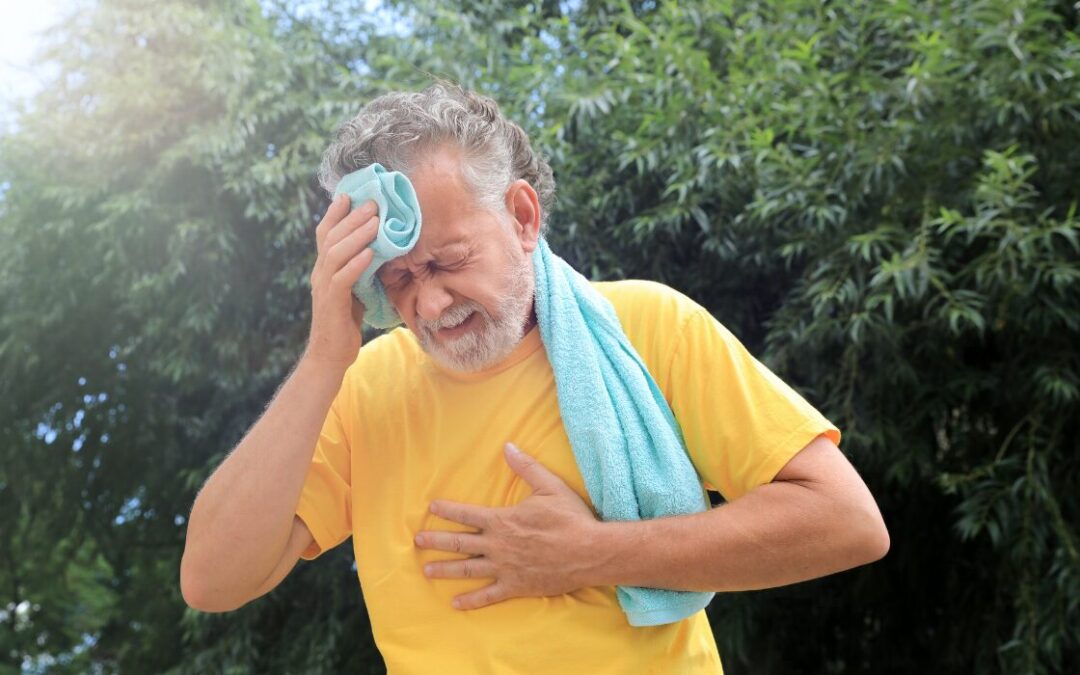Water does more than simply make you thirsty. It’s needed for almost every function of the body, from temperature control to the removal of waste. But digestion is one that people tend to forget. If you’ve ever asked yourself, “Can dehydration cause stomach pain?” then you’re not alone. And the answer is yes—and it’s a more prevalent condition than most people are aware of.
Let’s examine slightly closer the reason that it is so vital to remain hydrated for your digestive system’s health, and what’s happening in your stomach when your body is utilizing its reserves of water.
The Link Between Dehydration and Digestive Discomfort
Your body is dependent on liquids to digest food and move it through your system. If you don’t have sufficient water when you’re dehydrated, your body will start to divert resources to the most vital organs—the brain and heart—away from the non-vital systems. Digestion is the sad victim.
Dehydration can:
- Slowed movement of food through the intestines
- Make the colon pull additional water from the stool, resulting in hard, dry stool
- Make you bloat, cramp, and have constipation
- Causes acid build-up that gets your stomach lining in a bad mood
Even minor dehydration can upset the balance of stomach acids and short-circuit normal digestion. If ignored, it can lead to miserable bloating, irregular bowel movements, or stomach pain.
What Dehydration Does Inside Your Gut
Water is a lubricant for your digestive system. It reduces food particles to a pulp, transports nutrients, and keeps your digestive muscles in shape. Without sufficient water, all this comes to a screeching halt—typically spectacularly.
Research has indicated that those drinking less than 1.5 liters of water daily are most likely to experience more constipation and other GI symptoms. A population-based study published in the American Journal of Gastroenterology proved that inadequate fluid intake was consistently associated with greater GI distress, including bloating and cramps.
Dehydration is a traffic jam in your digestive system: everything is backed up, and pressure starts to build.
Signs That Dehydration Might Be Causing Your Stomach Pain
It can be difficult sometimes to determine whether you’re having stomach pain due to something you’ve eaten or because you need fluids. The following are some symptoms that may indicate dehydration is behind your stomach pain:
- Long-standing dryness in the mouth and/or throat
- Headaches and mental confusion
- Dizziness upon standing
- Weak or yellow-tinged urine
- Muscle cramps
- Generally feeling lethargic or fatigued
- Nausea and/or decreased appetite
If any one of these symptoms appears alongside the stomach pain, it is dehydration that’s to blame. Listen in on that body of yours—one sharper than we do ourselves, um, yeah?
Who’s More Likely to Experience Dehydration-Induced Stomach Pain?

Some detect sooner than others. These include:
- Children and Infants: These little reservoirs of water need it and lose water rapidly, primarily if they have a fever or diarrhea.
- Older Adults: As we get older, our sense of thirst naturally diminishes, and medications may also be a factor in disrupting fluid equilibrium.
- Athletes and Fitness Trainers: Sweating during exercise leads to a loss of fluid. If we do not replenish fluids from time to time, dehydration can hit us very soon.
- Residents of Dry or Tropical Climates: Hot and humid conditions make your body lose water faster at a higher rate.
- People with Certain Medical Conditions: Medical conditions like kidney disease, diabetes, and gastrointestinal illness lead to your body losing excess fluid or damaging its water-holding capacity.
If you are in either of these groups, it is all the more critical that you stay attuned to your hydration patterns.
How to Tell if It’s Dehydration or Something Else
Stomach pain has a thousand trivial to serious reasons. To help you figure it out, try asking yourself the following questions:
- Have I had my normal quota of fluids today?
- Have I been outside or been very physically active in the past day or two?
- Do I have other symptoms of tiredness, dizziness, or dry mouth?
- Have I had fewer than normal bowel movements in the past day or two?
If yes to most of them, there’s a pretty good bet that dehydration is at least partly the issue.
But if your hurt comes on abruptly, is extremely sharp, or in case it happens with fever, vomiting, or blood in the stool, it’s time to consult a doctor. Never dismiss the idea that something serious could be occurring.
Tips to Stay Hydrated and Avoid Stomach Pain
Hydration isn’t just the best way to fend off stomach issues—it benefits your entire body. The importance of hydration can’t be overstated. Here are a couple of easy ways to stay hydrated throughout the day:
- Begin every morning with water as a way of “awakening” your digestive system, before coffee and breakfast.
- Keep a refillable water bottle: By keeping it with you, you’re more likely to have it at some point in the day. Do not use plastic water bottles.
- Phone reminders: In case you have not had water, when there is just too much work. There are apps that can help you remember.
- Include hydrating foods: Celery, yogurt, strawberries, and watermelon are some good hydrators.
- Drink before you exercise, between exercise, and after: This replenishes lost fluid in sweating and maintains muscle (even intestinal muscle) in top working order.
- Avoid sweetened drinks: They can ultimately make you thirstier. Opt for water, herbal tea, or flavored water.
Keep in mind, when you feel thirsty, you may already be dehydrated. Habit is what counts.
When Should You See a Doctor?
While a stomach pain caused by dehydration is usually curable, there is a point when assistance must be obtained. Call a healthcare provider if:
- Pain persists for more than 24–48 hours
- Cannot retain fluids
- Experience severe signs of dehydration (confusion, no urine, fainting)
- Notice blood in vomit or stools
- Have a history of gastrointestinal disease, and your symptoms suddenly worsen
Conclusion
Well, to get to the question of the day—can dehydration cause stomach pain? Yes. When your body runs out of fluid, your digestive system is harmed. Food travels more slowly, acids scald your stomach lining, and cramps or bloating may be a consequence. The solution? Stay ahead of dehydration with daily habits that place fluid in its proper place.
If you’ve been feeling off or experiencing unexplained stomach pain, take a moment to assess your hydration. A simple glass of water might be the relief your gut is looking for.
FAQ’s
Can dehydration cause sharp stomach pain?
Yes. Dehydration can lead to painful cramping, especially when it slows digestion or causes constipation.
How long does it take to feel better after rehydrating?
The small dehydration will improve within a few hours with an adequate amount of water, but it will take longer if you have had this issue for some days.
Is plain water the best way to rehydrate?
Yes, but you can use fluids that have electrolytes (such as coconut water or the rehydration drink) in case you have vomited or you’ve worked very hard.
Can you get dehydrated even if you drink water?
Yes, if you’re losing more fluid than you’re consuming—through sweating, illness, or inadequate electrolyte balance—you can still become dehydrated.

